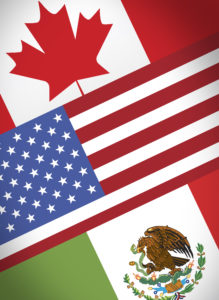News & Insights
U.S. State Department Increases Maximum Civil Penalty Amounts
As of January 3, 2018, the maximum civil penalty amounts that may be assessed by the U.S. State Department for violations of certain laws and regulations have been adjusted upwards for inflation per the Federal Civil Penalties Inflation Adjustment Act of 1990, as amended. What does this mean for U.S. companies? Briefly, violations of the Arms Export Control Act (AECA) and the International Traffic in Arms Regulations (ITAR), as well as the following laws and regulations enforced by the State Department in Title 22 of the Code of Federal Regulations, are now subject to increased maximum civil penalty amounts:
- AECA and ITAR: The ITAR and the AECA apply to the exports, reexports, temporary imports and brokering in defense articles and defense services—they are enforced by the State Department’s Directorate of Defense Trade Controls (DDTC). The maximum civil penalty that may be assessed for violations of the ITAR was increased to $1,134,602 from $1,111,908.
- Chemicals Weapons Convention Implementation Act of 1988: This law implemented into U.S. law the Convention on the Prohibition of the Development, Production, Stockpiling, and Use of Chemical Weapons and on Their Destruction. The maximum civil penalty amount for prohibited acts relating to inspections was increased from $36,849 to $37,601. In addition, the maximum civil penalty amounts for recordkeeping violations was also increased from $7,370 to $7,520.
- Program Fraud Civil Remedies of Act of 1986 (PFCR): This law authorizes State Department agencies, with approval from the Justice Department, to take action against individuals or firms for making false claims. The maximum civil penalty amounts that may be imposed for violations of the PFCR have been increased to a range of between $11,181 and $335,443 (previously the maximum liability range was $10,957 – $328,734).
- Federal Lobbying Regulations (31 USC 1352): This law prohibits recipients of federal contracts, grants and loans from using appropriated funds for lobbying the Executive or Legislative Branches of the federal government in connection with a specific contract. Any person who violates this prohibition is subject to a civil penalty. The statute also requires each person who requests or receives a federal contract, grant, cooperative agreement, loan or a federal commitment to insure or guarantee a loan, to disclose any lobbying—the failure to disclose may also lead to the imposition of a civil penalty. For first offenders, the maximum civil penalty amount was increased from $18,936 to $19,322. For other offenders, the maximum civil penalty amount was increased from a range between $19,246 and $192,322 to the range of $19,322 to $196,387.
See 83 Federal Register 234 (January 3, 2018) for complete details.
If you have any questions pertaining to these upward civil penalty adjustments, need guidance with respect to compliance with the ITAR or other U.S. export controls, or require further information on other international trade issues, please contact Melissa Proctor at Miller Proctor Law PLLC (melissa@millerproctorlaw.com).
News & Insights

Amendments to the Federal Maritime Commission Regulations Governing Non-Vessel Common Carrier Negotiated Rate Arrangements and Negotiated Service Arrangements Are Now in Effect
As of August 22, 2018, per the final rule in FMC Docket 17-10, the Federal Maritime Commission (“FMC”) will now allow Negotiated Rate Arrangements (“NRAs”) to be amended at any time, to be accepted by booking a shipment and to

And Then There Were Three: The U.S., Mexico and Canada Agree to Sign the New USMCA
Canada just joined the United States and Mexico in agreeing to sign on to a modernized NAFTA, which will become known as the US-Mexico-Canada Agreement (“USMCA”). The U.S. and Mexico entered their agreement a little over a month ago, and


